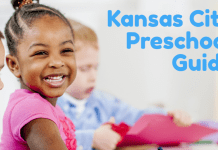Over the last two years, I’ve felt compelled to learn more about how various systems in our area work in order to be a better informed citizen who does more than merely vote when given the opportunity. One of my focal points has been early childhood education. I’ve done research, gone to (a lot of) meetings, and struck up conversations to see if I really understand the lay of the land beyond my own experience as an educator (I teach high school English) and as a parent of two small children, one of whom has special needs.
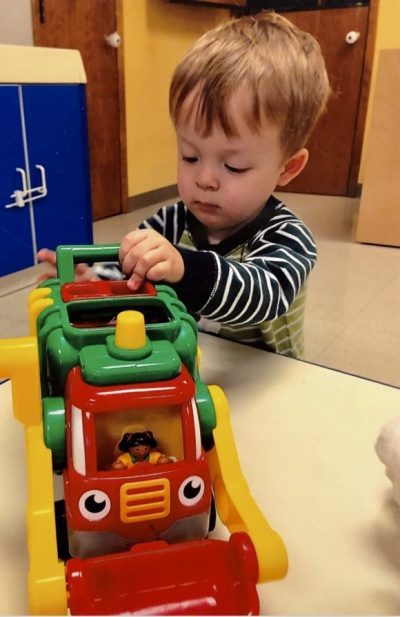 I’m sure many reading this already know about the general importance of early childhood education. Maybe some of you read my post about the life-changing early intervention our precious five-year-old son receives from our local public school district as well as from private therapy providers, intervention that has allowed him to flourish … although this mama is not yet ready for kindergarten round-up, even if he might be.
I’m sure many reading this already know about the general importance of early childhood education. Maybe some of you read my post about the life-changing early intervention our precious five-year-old son receives from our local public school district as well as from private therapy providers, intervention that has allowed him to flourish … although this mama is not yet ready for kindergarten round-up, even if he might be.
While early intervention has been a game-changer for our son, what I’m talking about is early childhood education for all kids, regardless of whether they have an identified need or not. My family’s experience obviously sparked my interest, but my research has more fully opened my eyes.
I began my research here at home and have discovered the issues surrounding early childhood education are particularly relevant in our region of the country. And, let me tell you guys, what I’ve found is startling. Based on a study released last August that ranks the early childhood education systems of all fifty states (plus Washington, D.C.) as far as “Access,” “Quality,” and “Resources & Economic Support,” overall, Kansas ranks 46th and Missouri ranks 49th. You read that correctly: 46th and 49th. Nebraska (our friendly neighbors to the north and my own native state), Washington, D.C., and Maryland round out the top three.
Notable numbers: Our nation’s capital ranks first in “Access,” Arkansas first in “Quality,” and Alaska first in “Resources & Economic Support.” While all is not lost, as Kansas is 17th in “Access” and Missouri is 21st in “Resources & Economic Support,” both states’ overall performances should make all of us who live in the KC Metro and the states at-large uncomfortable and eager for improvement.
While I don’t like to admit it, it’s easy for problems and barriers that impact others to fade into the background when they don’t immediately impact me, which is why I’ve made a concerted effort this past year to try and think beyond my own circumstances whenever possible. Well, as far as accessibility of early childhood options is concerned, I quickly found out that affordable options really are as few as the previous study makes them seem.
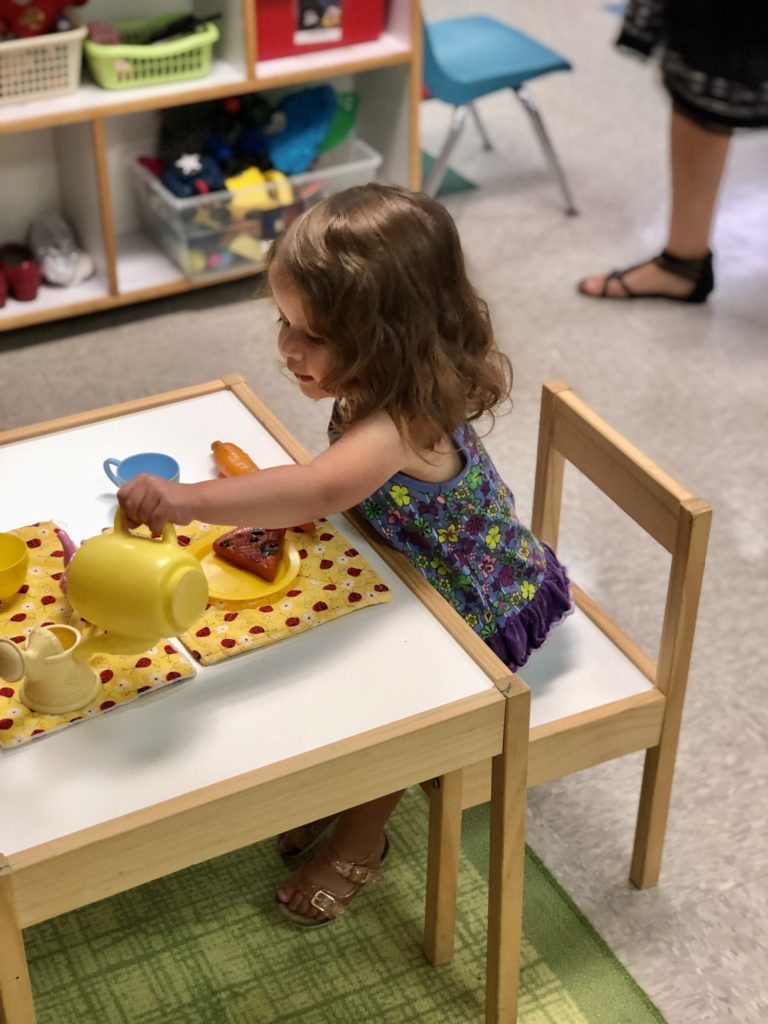 When searching for a Mother’s/Kids’ Day Out program for our now three-year-old daughter when she was 18 months old, the bigger picture came into stark focus. Spots available in our public schools are limited. Programs not connected to a religious institution are limited. Options that accommodate the schedules of working parents are limited. And, it can be hard to know where to look for information and support. In all honesty, I mainly relied on social media to find a program for our daughter. As I take stock of what made the “pre-pre-K” search so stressful for our family, I’m struck by how much harder it must be for those with narrow resources and just a small village of support.
When searching for a Mother’s/Kids’ Day Out program for our now three-year-old daughter when she was 18 months old, the bigger picture came into stark focus. Spots available in our public schools are limited. Programs not connected to a religious institution are limited. Options that accommodate the schedules of working parents are limited. And, it can be hard to know where to look for information and support. In all honesty, I mainly relied on social media to find a program for our daughter. As I take stock of what made the “pre-pre-K” search so stressful for our family, I’m struck by how much harder it must be for those with narrow resources and just a small village of support.
One way to expand a small village would be to check out your local public school district’s Parents as Teachers program. Our parent educator was such an important resource when our oldest was a baby; she has since become a good family friend. Whether you are able to participate in Parents as Teachers or not, I’d recommend looking into the early childhood offerings of your local public school district. Special education programs serve children who demonstrate a significant delay in one or more areas of development; in conjunction with those programs, many districts have fee-based peer programs where children who are developmentally typical learn and play alongside those who have an identified need. Depending on a family’s level of resources, there are also pre-kindergarten programs like Head Start.
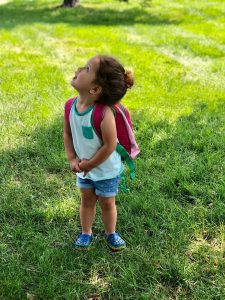 More broadly, The Family Conservancy has an extensive list of resources available to Kansas and Missouri families related to early childhood education and mental health, child care, parenting support, kindergarten readiness, and adolescent support. The Family Conservancy is a member of Child Care Aware® of America, which is an organization with chapters in Kansas and Missouri seeking to advance a child care system that effectively serves all children and families. Beyond publicly available resources, I’ve found that parents who are further along in their journey than I am have a wealth of knowledge to share; the KCMC Neighborhood Groups are a great place to ask questions and search the information already discussed.
More broadly, The Family Conservancy has an extensive list of resources available to Kansas and Missouri families related to early childhood education and mental health, child care, parenting support, kindergarten readiness, and adolescent support. The Family Conservancy is a member of Child Care Aware® of America, which is an organization with chapters in Kansas and Missouri seeking to advance a child care system that effectively serves all children and families. Beyond publicly available resources, I’ve found that parents who are further along in their journey than I am have a wealth of knowledge to share; the KCMC Neighborhood Groups are a great place to ask questions and search the information already discussed.
Last spring, I had the pleasure of shadowing a Kansas state legislator in Topeka for a day. The stars aligned because I was able to sit in on a presentation from the Greater Kansas City Chamber of Commerce and heard about the work they are doing to advocate for early childhood education. In particular, they spoke about Kindergarten Readiness, which is admirably one of their “Big 5 Initiatives.” According to their research, a third of Kansas City kids are not ready for kindergarten when they walk through the door. As a business organization, it’s in their best interest to find ways to ensure a robust and ready workforce, which is a process that starts at birth.
The KC Chamber explains the vital importance of early childhood education better than I can: “Research shows that 90 percent of a child’s brain is developed by the time that child is five years old. Getting kids off to the right start pays off, increasing graduation rates and income earned over one’s life. It also reduces juvenile delinquency, addictions, learning disabilities, obesity and other health issues, lowering welfare costs, and even decreasing crime.”
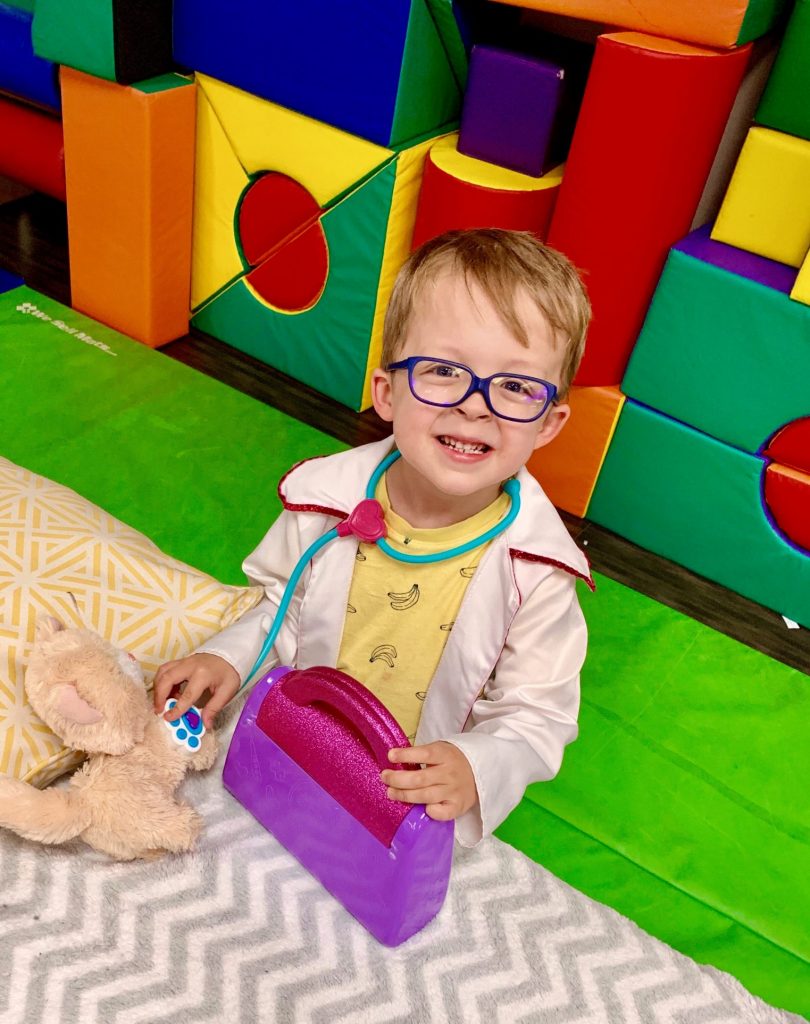 Talking about how crucial the first five years of life are to the development of every single human being will help ensure a brighter future for all of us, especially if those conversations result in positive, impactful change. That in mind, please share the information provided here with your family, friends, neighbors, and favorite social media groups. Maybe some of you will even feel compelled to contact decision makers, who knows?
Talking about how crucial the first five years of life are to the development of every single human being will help ensure a brighter future for all of us, especially if those conversations result in positive, impactful change. That in mind, please share the information provided here with your family, friends, neighbors, and favorite social media groups. Maybe some of you will even feel compelled to contact decision makers, who knows?
Our collective duty to children, whether we are their parents or not, is at the core of our humanity. Doing right by them is our most sacred covenant. After all, the kids of today will be the adults of tomorrow.








